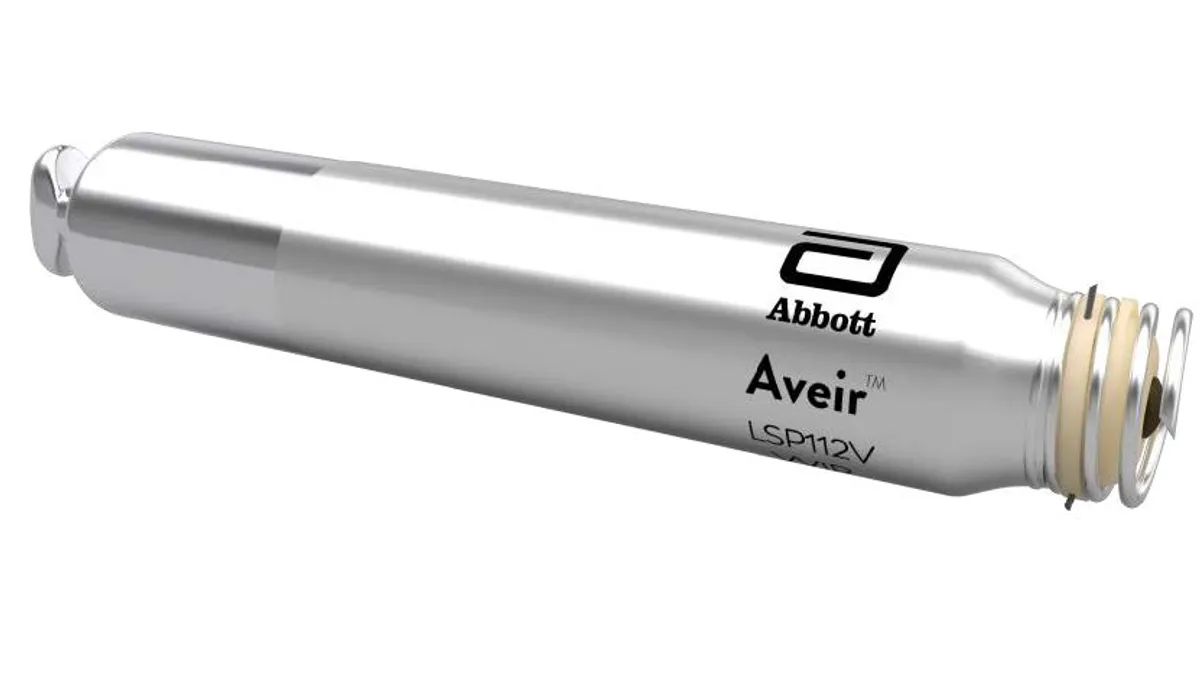Abbott on Thursday posted a decline in second-quarter net earnings as demand for its COVID-19 testing supplies continued to wane, but the company raised the outlook for its base business on higher sales of its medical devices and nutrition products.
Excluding COVID-19 tests, organic sales exceeded the company’s expectations with a nearly 12% increase in the quarter.
“Growth in the underlying base business accelerated, driven by improving market conditions and contributions from both new products and legacy growth platforms. Our pipeline continues to be highly productive, which will sustain our strong growth profile in the future,” Abbott CEO Robert Ford said on the company’s earnings call.
Healthcare systems are getting better at managing labor challenges and are increasing their capacity to treat patients and expand services, Ford said. At the same time, consumers are prioritizing spending for healthcare products, which is driving demand, the CEO added.
The company now expects its full-year 2023 organic sales growth to be in the low double digits, an increase from the high-single-digit growth projection it made last quarter.
“All in all, this was another solid print for Abbott with investors likely to be satisfied with the (greater than) 10% organic base business growth and improved top- and bottom-line outlooks despite lower COVID testing sales,” J.P. Morgan analyst Robbie Marcus wrote in a research note.
Medical devices
Worldwide sales of the company’s medical devices climbed 14%, boosted by organic growth in diabetes care, electrophysiology, structural heart and neuromodulation, Abbott said.
The recently launched Aveir leadless pacemaker led growth of 8% in the heart rhythm management business. Abbott gained FDA approval for a dual chamber version of the device during the quarter that allows two pacemakers to communicate with one another inside the body.
“This unique technology offers the potential to revolutionize care for millions of people who require a pacemaker,” Ford said on the call.
The company expects its leadless heart devices, designed to eliminate complications associated with the lead wires in traditional pacemakers, to accelerate its growth in the cardiac rhythm management market, where it competes with Medtronic and Boston Scientific.
Neuromodulation sales grew 16%, driven by the recent launch of the company’s first rechargeable neurostimulation device for pain management. The device “targets a large segment of the market where we previously did not compete,” Ford said.
During the quarter, the company also received FDA approval for an ablation catheter to treat atrial fibrillation with a flexible tip and sensing technology. Called TactiFlex, the catheter is designed to speed procedure times and improve outcomes.
Freestyle Libre
Sales of the FreeStyle Libre continuous glucose monitors climbed 23% to $1.3 billion. The devices recently gained Medicare coverage for a broader group of patients.
Diagnostics
Excluding COVID-19 testing, global diagnostics sales were up 4.3% on a reported basis. Worldwide COVID-19 test sales fell to $263 million in the second quarter from $2.3 billion in the year-earlier period.
Nutrition
Sales in the unit, which is recovering from an infant formula recall last year, rose 6.3% worldwide on a reported basis. Pediatric nutrition sales increased 11%, driven by a market share rebound in the U.S. infant formula business, the company said. On the adult nutrition side, sales of Abbott’s Ensure brand boosted global reported sales by 2.5%.
Outlook
Abbott maintained its forecast for full-year adjusted earnings, excluding one-time items, in a range of $4.30 to $4.50 per share. The forecast anticipates an improved base business outlook to offset expected lower COVID-19 testing sales of $1.3 billion, down from the prior forecast of $1.5 billion.
Full-year GAAP earnings per share are projected at $3.02 to $3.22.










